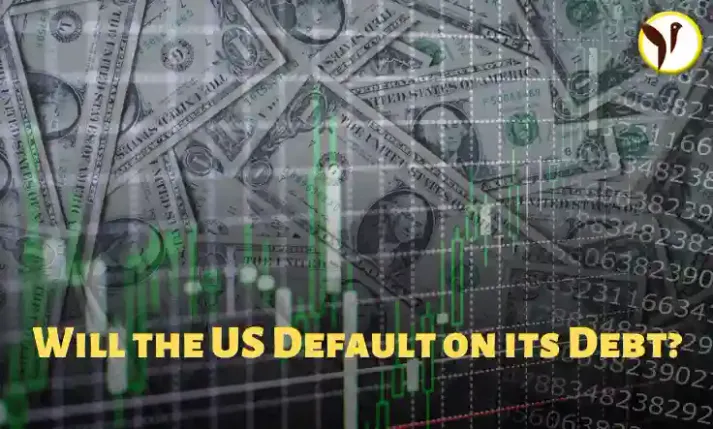As the United States approaches its debt ceiling of $31.4 trillion, concerns regarding the nation's financial stability have surfaced. The US government has consistently spent more than it earns, necessitating borrowing to meet its obligations.
Once the US debt ceiling breaches, the government can likely curtail spending and raise taxes to avoid defaulting on existing interest payments.
This scenario would have dire consequences, including a potential downgrade in the nation's credit rating, increased interest rates, and turmoil in financial markets.
Known as the "X-date," the impending deadline by which the US government may no longer be able to pay its bills is rapidly approaching. Past instances of nearing the debt ceiling have resulted in significant disruptions to domestic and global financial markets.
To avert this outcome, negotiators from both the Republican and White House camps are inching closer to an agreement that would raise the debt limit and cap federal spending for two years, according to Bloomberg reports.
However, the repercussions of breaching the debt ceiling would be severe for the US economy, with ripple effects felt worldwide. The US dollar, being a dominant currency in international trade, would experience considerable impact, subsequently affecting global markets.
Volatility in financial markets would increase, putting pressure on currencies such as the rupee. Stock markets are also likely to face heightened turbulence, and businesses exposed to the US market may exercise caution.
The risks of debt default and warnings from credit rating agencies could prompt a surge in US sovereign yields, potentially influencing domestic yields as well. The US hit the debt ceiling of $31.4 trillion on January 19, and if Congress fails to raise or suspend the debt ceiling by June 1, the government may run out of funds to meet its financial obligations.
Must Read: India on the verge of being a developed nation?
While the US has faced similar situations 78 times since 1960, the US has never defaulted on its debt obligations. It has consistently managed to navigate these challenges by raising the debt ceiling.
U.S. sovereign yields may be under pressure due to the possibility of a debt default and warnings from rating agencies, with possible domestic-level implications. Rating agency alerts and the potential for a debt default might pressure U.S. sovereign yields, which could have an adverse effect on the domestic market.
According to Suvodeep Rakshit, senior economist at Kotak Institutional Equities, a default and no agreement would be bad for India since flows would leave risky assets. However, how bad it would be for India would depend on how much the U.S. government would cut expenditures. Rakshit said there would be numerous effects on India's capital and trade flows if it resulted in a severe recession.
According to Gaura Sengupta, an economist with IDFC First Bank, there shouldn't be any effects on the Indian financial markets if a settlement is made. "We could see little growth in US Treasury yields as issuances rise only when the debt ceiling is increased", he said.
Lastly, amidst these developments, investors are advised not to panic and make irrational decisions based on exaggerated media headlines.
— Kritika Singhal
Also, Read: Is Germany facing recession?







